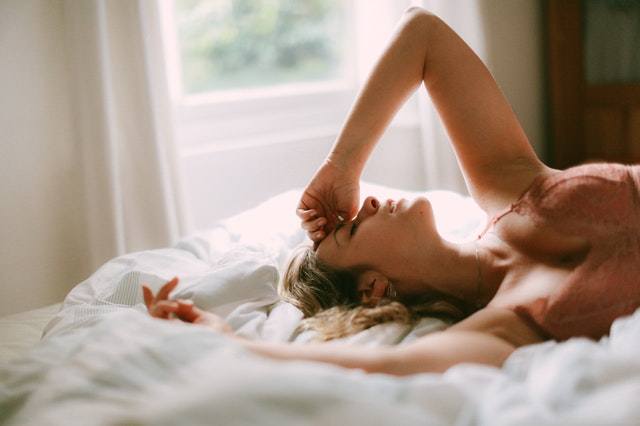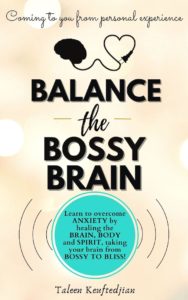Why Do I Keep Waking Up at 3 AM?
You may be asking yourself, “why do I keep waking up at 3 AM if I need 7 – 9 hours of sleep?” Stage 3 is the deepest sleep and usually occurs in the first 1/2 of the night, meaning you are less likely to wake up in the first 1/2 of your sleep. You are in a lighter sleep in the second 1/2 of the night, which means that any slight noise, light, stress, or anxiety can wake you up at this point. So, if you are in “light sleep” and have a lot on your mind, you are more likely to wake up at this point. Once your brain is fully active, it will be harder to fall back asleep because you already experienced your deepest sleep in the first 1/2 of the night.
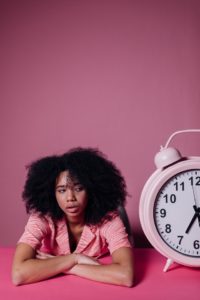
Insomnia and sleep deprivation are not a disease, they are a symptom of another cause. Let us explore the potential causes to see if we can identify the culprit.
What Causes Insomnia or Sleep Deprivation
#1 Anxiety and Stress
Anxiety and stress can create excessive stress hormones within the body. Stress hormones block adenosine and melatonin, which are both responsible for sleep. Anxiety and stress trigger the “fight or flight” response which pumps stress hormones in your body. Stress inhibits sleep because your body thinks there is a threat and wants you to stay alert. Stress hormones and melatonin can build up in the body if they are not released regularly. Adenosine and melatonin can build up in the system resulting in daytime drowsiness, while the excessive stress hormones keep you awake at night. The liver eliminates melatonin in the morning so that you can feel alert and energetic throughout the day. However, an overwhelmed liver can cause a delay in the breakdown, leading to daytime sleepiness. You may feel alert at night because your liver is finally able to eliminate the sleepy hormones. The problem is that you need melatonin at night, not during the day. So, you are up at night, sleepy during the day, and of course, you cannot sleep because you have stress hormones preventing you from sleeping.

#2 Liver Strain
The liver is responsible for breaking down and processing hormones. So, your liver needs to be in good shape to eliminate the stress hormones properly. Those with chronic stress and anxiety most likely have an abundance of stress hormones running through their body. This is because their liver is on overdrive and unable to process all these hormones at once. Not only do these excess stress hormones contribute to more stress and anxiety, but they also inhibit the production of melatonin, which is essential for good sleep.
#3 Low Blood Sugar Levels
Our body is fasting throughout the night, and this is when our blood sugar is at its lowest. If someone is prone to low blood sugar levels, they are more likely to have lower levels during the night. This causes the brain to panic because it thinks there is no more food. The brain now triggers the release of stress hormones to wake you up so you can eat.
#4 Sleep Disorders
Sleep disorders such as sleep apnea or restless leg syndrome (RLS) make it harder to enter stage 3 deep sleep. Someone experiencing sleep apnea is constantly awoken by their brain telling them to breathe, while those with RLS are woken up continuously due to discomfort. Those with sleep disorders tend to spend most of their sleep in stages 1 and 2.
#5 Discomfort
Discomfort due to overheating, body pain, indigestion, night terrors, and heavy dreaming.
#6 Menopause
Menopause causes sleep deprivation due to reduced levels of estrogen and progesterone. Estrogen facilitates the production of serotonin, while progesterone has a relaxing effect. Serotonin triggers the production of melatonin at night, which helps you sleep. Without enough serotonin, you will find yourself waking up often throughout the night.
#7 Busy Brain
Busy brain is an overabundance of stimulating information that takes away the capacity to process information and learn new things. This is usually a result of information overload coming from the digital world. The brain may trigger the “fight or flight” response thinking this information overload is a threat. This keeps stress hormones pumping through your body, and stress hormones inhibit sleep.
#8 Fluctuating Hormones
Fluctuating hormones can have a significant impact on your quality of sleep. Female hormones fluctuate throughout the month to facilitate pregnancy. Two main hormones that fluctuate throughout a cycle are estrogen and progesterone. Estrogen promotes the production of serotonin, which triggers the release of the melatonin that helps us sleep. Progesterone is known to produce a relaxation effect. Estrogen plummets during ovulation and a week before menstruation, causing mood swings, anxiety, depression, insomnia, and sleep deprivation. When serotonin is low, it makes it harder to produce sleep-inducing melatonin.
#9 Aging
As we age, our brain begins to deteriorate, making it harder for the brain to trigger sleep hormones. Infants spend 50% of their sleep in stage 3 deep sleep, which lessens as they get older. Adults spend about 20% of their sleep in stage 3 deep sleep, and this diminishes further with age. This means that the elderly spend a lot of time in light sleep or stages 1 and 2, making it easier to wake up during the night.
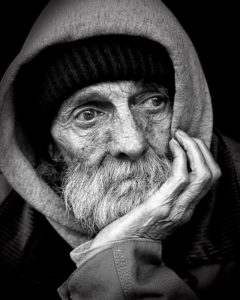
#10 Alcohol
Alcohol consumed before bed may help you fall asleep quickly, giving you a deep sleep for the first hours of the night. However, it reverses its effect during the second half of the night once your body metabolizes the alcohol. Acetaldehyde is responsible for hangovers and is a toxic byproduct of alcohol. The liver breaks it down within a few hours of consuming alcohol. It then converts to acetate, which provides your body with energy. This could be the reason you fall asleep easily when drinking alcohol but find yourself wide awake a few hours later. REM sleep usually occurs in the second half of sleep, meaning you will get less of it. Since you experienced deep sleep in the first few hours, the rest of your night will be spent in light sleep, causing you to wake up easier. Avoid drinking alcohol close to bedtime to sleep better. You should have a better chance at getting quality sleep if you consume alcohol earlier in the evening, giving your body time to metabolize it before bed.
#11 Caffeine
Caffeine blocks the release of the sleepy hormones, melatonin and adenosine, while pumping out stress hormones to keep you awake and alert. An excess of stress hormones within the body makes it harder to fall asleep and stay asleep.
#12 Low Serotonin
Low serotonin can interfere with sleep because it triggers melatonin, making us sleepy. Serotonin is also responsible for waking us up, making this hormone extremely important to have a healthy circadian rhythm. So, serotonin is responsible for both sleep and wakefulness. Therefore, low serotonin will keep you up at night while leaving you tired during the day.
#13 Fatigue
Fatigue can be a symptom of low serotonin, but it can also cause insomnia, thereby contributing to more fatigue. This can be frustrating to someone who feels tired throughout the day but cannot sleep at night. Remember that serotonin is responsible for both wakefulness and sleep. Serotonin helps you stay alert and focused throughout the day while helping you sleep at night. Therefore, a lack of serotonin can make you feel tired during the day but will not be unable to trigger enough melatonin at night to help you sleep.
#14 Frequent Bathroom Visits
Avoid consuming liquids a few hours before sleep. Going to the bathroom often becomes inevitable with age. If you suffer from excessive bathroom visits, try bladder control training to help curb this problem. Bladder control training is when you exercise and strengthen the pelvic muscles, enabling you to hold urine longer.
#15 Lack of Sunlight
Sunlight triggers the release of serotonin throughout the day, boosting our mood while keeping us calm and focused. Serotonin also triggers the release of melatonin at night, which helps us sleep. A lack of sunlight would interfere with this process, making it harder to get a good sleep.
#16 Recent Sleep Patterns
Recent sleep patterns can affect our natural clock, also known as the circadian rhythm. Our circadian rhythm fluctuates according to daylight, nighttime, and the surrounding temperature. Our body will trigger the release of hormones that either promote sleep or wakefulness based on the time of day. The circadian rhythm can get out of whack due to varying sleep patterns. For this reason, you should try to sleep and wake at the same time each day.
#17 Cycling Into Light Sleep Stages During the Night
Deep sleep usually occurs within the first 5 hours of sleep. This is why you might be waking up in the middle of the night, unable to go back to bed. Someone who sleeps at 10 PM may wake up at 3 AM because they have cycled into lighter sleep. If there is a lot on their mind or they are stressed out, it’s easier to wake up during this phase.
19 Tips on How to Fall Asleep

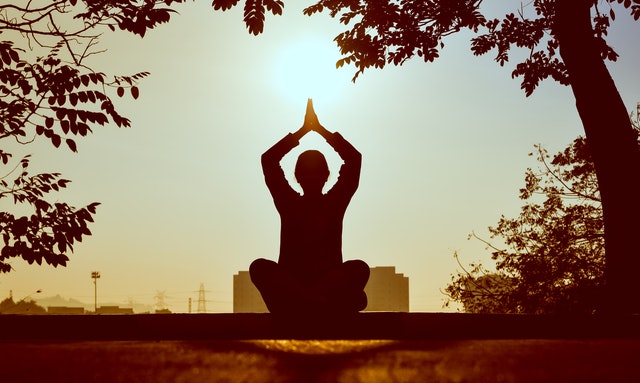
- Reduce stress and anxiety as much as possible.
- Try a liver detox and make sure to keep your liver healthy.
- Stabilize your blood sugar levels by reducing the sugar and refined carbohydrates you consume. A low-carb diet like the keto diet can help regulate blood sugar levels.
- Unwind your busy brain by avoiding electronics, incorporating relaxation exercises, and making a list to prioritize your thoughts and distractions.
- Limit sleep disorder triggers – For example, if you have sleep apnea, make sure you do not eat before bed, smoke, drink alcohol, or eat inflammatory foods.
- Balance out your hormones – You can stabilize your hormones through food, supplements, and stress reduction.
- Do not eat before bed. Leave at least 2 hours to digest before you go to bed.
- Make sure you are not overheating in your sleep. Look for a breathable blanket that will help you maintain a comfortable temperature while you sleep.
- Exercise your brain to reverse the age-related deterioration of the hypothalamus. Learn something new every day, pick up a new talent, play memory games, or work on jig-saw puzzles.
- Avoid liquids 2 hours before you sleep.
- Do not drink alcohol before bed. Eliminate the alcohol in your system before you go to bed to increase REM sleep.
- Avoid or limit caffeine intake.
- Make sure you are getting adequate sunlight. Get a blood test to see if you are low in vitamin D. If so, take a supplement in the morning. Avoid taking it at night because it interferes with the production of melatonin.
- Increase serotonin levels naturally or supplement with 5HTP. *Do not take 5HTP if you are currently on anxiety or depression medication.
- Wear an eye mask to encourage the release of the sleepy hormones related to darkness, such as melatonin.
- Exercise can improve your sleep by reducing stress and tiring you out. You can also incorporate yoga to help with relaxation.
- Sleep and wake at the same time each day. Ideally, somewhere between 10 PM – 6 AM would be optimal. Avoid sleeping over 9 hours because you may find it hard to fall asleep later that evening.
- Make a list of things you need to do the next day, or plan out your week. Organizing and prioritizing your thoughts will help relieve stress and prevent you from getting overwhelmed. As you tackle each task, you can cross it off your list.
- Insomnia light therapy – This can help reset your body’s circadian rhythm or natural 24-hour clock.
Insomnia can be extremely frustrating and exhausting
Finding out what is causing your symptoms and ways to improve sleep can help you overcome sleep deprivation. If you wake up in the middle of the night and cannot go back to bed, do not stress out, work, overthink, or expose yourself to light. These activities will pump out stress hormones and other daytime hormones, making it harder to go back to sleep. The goal should be to relax your body and mind as much as possible. Take deep breaths, tense and release your muscles to encourage relaxation, and clear your mind as much as possible. Being aware of your thoughts can bring you into the present moment. Just focus on the darkness underneath your eyelids. If you find your mind wandering, do not fight it or get frustrated, but try to take yourself back to your breath.
A relatable guide to overcoming anxiety by finding the root cause, and bringing the brain, body, and spirit back into balance. Coming to you from personal experience!
Learn more about Habitat for Wellness

